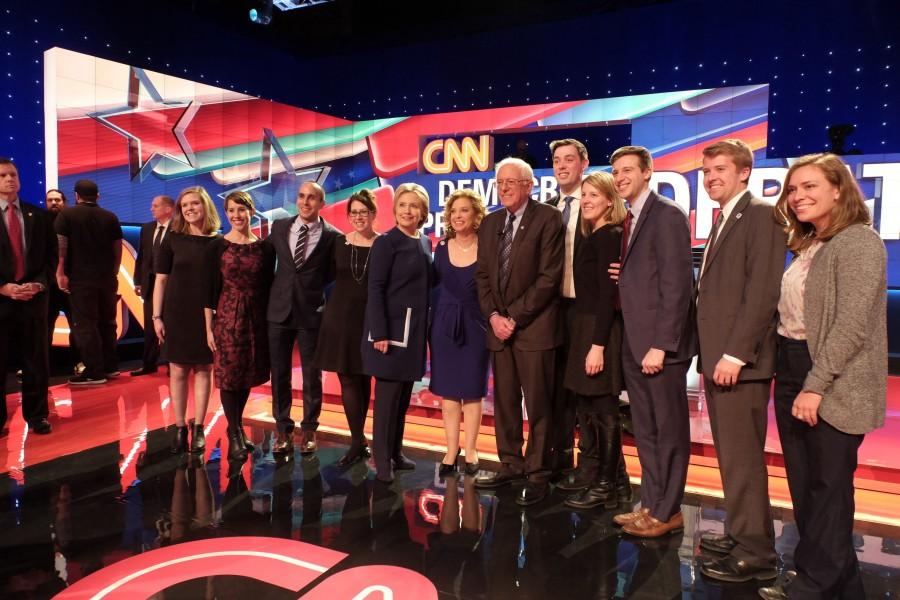Vote. Vote. Vote.
CNN Democratic Debate at the University of Michigan in Flint, Michigan. Courtesy of CNN.
In our democracy, the right to vote is paramount. For many, it is the only tool we retain to have a say in political life. The truth is, most of us don’t possess millions of dollars to spend on elections, and we likely never will.
Our forebears fought, scraped, dragged and died for our rights to cast a ballot. The Fifteenth, Nineteenth, Twenty-third, Twenty-fourth, and Twenty-sixth amendments were not passed easily or on a whim. Fifteen, which guarantees the rights of black men to vote, was ratified on February 3rd, 1870, five years after the end of the Civil War and the assassination of Abraham Lincoln. Even after its passage, however, this wasn’t the end of the story. Most black men and women couldn’t vote until the civil rights era fulfilled the promises of Reconstruction, 100 years later.
Women would have to wait a half century after the ratification of the Fifteenth for their rights to be recognized in the Nineteenth Amendment. As it reads: “The right of citizens of the United States to vote shall not be denied or abridged by the United States or by any State on account of sex.”
In 1961, the District of Columbia was finally given the right to cast votes in Presidential elections (even though its member of Congress is still non-voting). As a way to mark their continuing struggle the residents of Washington D.C. still bear the words “Taxation Without Representation” on their license plates.
The Twenty-fourth amendment, often overlooked, helped to return the promise of equal votes to African-Americans. It deemed poll taxes and other such election taxes illegal, stepping around the loopholes created by so many states to bar black citizens from voting.
And finally, the Twenty-sixth amendment. It would take the disaster of the Vietnam War for the United States to protect voting rights for citizens 18 and older. The rationale: if you could die for your country at 18, you damned well better be able to vote for the people who send you to war.
As one can surmise, voting in this country has not come easily. However, the hardest thing a voter today faces is getting registered prior to the election. Does that sound like a struggle to what the aforementioned amendments protect us against?
This election, as each election does, holds life and death decisions. The President is the Commander in Chief, and the War Powers Act doesn’t make it easy to stop a war. You need to vote to ensure whoever occupies the Oval Office will conduct his or her duties in an excruciatingly thoughtful and analytical matter. Our generation grew up at war, and we are not quick to happen back into one.
The future of the planet hangs in the balance. Climate change is already happening. You need to vote for the best candidate to take on that daunting crisis.
Gun violence and mass incarceration riddle this country. Many in the developed world say “only in America.” This must end. Vote for someone to stop the carnage.
In this, the richest of the richest countries on the planet, too many are hungry and shivering. Too many are working too long for too little. Dickens said it best when he scoffed, “Business! Mankind is my business!”
In the words of Will Bailey (from the West Wing), “No matter who you vote for, vote.” And that’s exactly the point. Whoever you believe can helm the country for four years, and have as many of us as possible be better off for it, that’s the person for whom you should vote. It’s your choice and your right.















